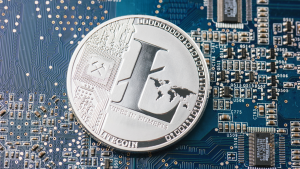
Almost half of UK crypto investors don’t have an ISA and here’s why
February 17, 2022According to research conducted by online investment platform AJ Bell many crypto investors are bypassing what they call the basic building blocks of a financial plan and are jumping in at the deep end of the risk spectrum.
The survey was conducted by findoutnow of 1,283 cryptocurrency holders between 9 and 11 February 2022 and found that:
- Almost half of UK crypto investors (47%) don’t have an ISA
- …and around four in ten (38%) don’t have a pension
- Most crypto investors are dabblers – seven in ten (69%) have less than 10% of their total assets in crypto
- But a third aren’t prepared to lose any money on their crypto investment
- Inflation concerns aren’t driving crypto purchases
Laith Khalaf, head of investment analysis at AJ Bell, commented that: “ISAs and pensions are valuable tools that consumers can use to grow their wealth, but these are being ignored by a large swathe of the crypto community. Almost half of UK crypto holders don’t have an ISA, and around four in ten don’t have a pension, based on respondents to our survey.”
However, with paltry returns of a mere 1.77% for investing your hard-earned funds for 7 years as the current best ISA rate according to moneyfacts.co.uk and the Bank of England predicting inflation to rise to over 7% by spring 2022 is it any wonder that investors are turning to alternative investment strategies.
Furthermore, according to the Bank of England’s inflation calculator, if you bought £10 worth of goods and services in 2014 (7 years ago) those same goods and services would cost you £11.91. However, if you had invested that same £10 into an ISA at the current rate you would only have £11.77. Effectively if you had invested the money, you would be 14 pence worse off for your efforts.
Whilst the closing price of Bitcoin in 2014 was $320.19 if you had bought $10 worth of Bitcoin in 2014 it would now be worth $995, and that does not even take into account any staking rewards that could have been earned.
Now this is not to discount the relevance of ISA’s as part of a financial plan as they clearly provide an important function. However, there is a clear discrepancy between what traditional high street banks are bringing to the market and what investors can make elsewhere.
Khalaf further postulates that “Cryptocurrencies are a relatively new phenomenon, and their long-term survival still has a big question mark over it…The same is not true of investing in the stock market. While there are no guarantees, there’s a very good chance that over ten years you will make a positive return from an investment in stocks.”
If you bought in at the FTSE 100 at its lowest price in 2014 you would be looking at about a 12% return today, meaning that your £10 would be worth £12 meaning that you would be 9 pence better off than when you started. Still a far cry from the £730 you would have made from Bitcoin. Whilst it must be considered that stocks are leveraged against a company’s income and assets and cryptocurrency is often not leveraged against anything, it is possible to lose your money on the stock market just as quickly as it is to lose it in cryptocurrency. This risk to reward rationality is in fact the reason investors are turning away from traditional markets, not, as AJ Bell would put it, “an act of faith [rather] than logic”




